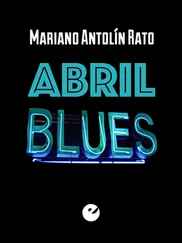I foresaw that it would be painful to go back again, and yet I was unable to resist. I accepted your invitation, and so we went. It wasn’t my intention to give voice to my distress or pass it along to you. I said to myself, ‘Nada won’t notice anything.’ I made up my mind that my previous visit must have been tantamount to an immunisation, at least to some degree, and that this would enable me to contain my reactions. How did things get out of control? This whole letter, Nada, as I hope you have inferred, is an attempt to explain why the situation got away from me. No, it wasn’t because my father, and then after him my mother, had died, but because this time I went back to the village bringing tourists with me. I’m not criticising you — I swear that I’m not criticising you. That beautiful village on the shores of Lac Léman — I was paying it a fleeting visit. I read in the tourist literature about a magnificent garden called ‘The Garden of the Five Senses’. I said to myself, ‘My daughter is blind.’ Now, two months after the fact, I declare that anyone who is ignorant of a place is blind — no more, no less. And when I say ‘ignorant of a place’ I’m not talking about a road map or where the route begins and ends, but about a place that is specific to us, in which our own story resides, and which houses our five senses. I must admit, the presence of the twins exacerbated the difficulty. I couldn’t endure their noise and their demands; I hadn’t, in the first place, been able to accept that they were the children of another woman with whom my husband had been intimate.
In short, Nada, the trip was a disaster because I knew for certain then that my alienation was total, whether in Yvoire, in Paris, or in Cairo. It was clear that, unwittingly — in a way it was sheer madness — I had made up my mind and decided to go with you to Yvoire, fortified by your presence, as if your being with me would dissipate some of the sense of alienation, and relieve me of it. But I saw my daughter as a tourist in my own birthplace, and I lost my reason.
I’ll leave this letter now and finish it tomorrow, or the day after.
My mother didn’t finish the letter the following day or on any subsequent day. She left it incomplete, and thus I would never have an opportunity to read it except after her death.
I folded the letter, and left the house.
Chapter eighteen
The twins
When the twins were small, Hamdiya tended to buy matching garments for them, but I pointed out to her that it would be better to buy them each different clothes. They became accustomed to this, and, as they grew older, each of them would choose according to his own taste and inclination. They looked similar, although they were not identical: brothers joined by blood and genetic background and by whatever stimuli they were both exposed to every day — the same kindergarten, school, classroom, teachers, classmates, friends, and daily routine. And because human beings are like mirrors, the features of one person reflected to a considerable degree in those of the next, Nadir and Nadeem looked more alike than they actually were. Nadir was not as tall as his brother, his complexion and his eyes were darker, and his hair was coarser. It was easy to tell that they were twins until they got to high school. Thereafter they differed more, for Nadir chose to grow a moustache and a close-trimmed beard, which covered his whole chin and made him look rather like a young French writer of the late nineteenth century. His brother’s moustache, on the other hand, stayed downy until he went to university. When his facial hair began to grow thicker after that he would shave every day. Their voices were very similar, identical in timbre, so that neither Hamdiya nor I could distinguish between them at the start of a telephone conversation, or when one of them called from the bathroom to ask for a towel. Beyond that it was possible to tell the difference, because each had a particular rhythm to his speech.
It is my conviction that seeds sprout by their own inscrutable law, their own particular logic as regards both nature and nurture. From me the twins got their sense of irony and their scepticism, which I resolutely insist are characteristics of intelligence. Nadir, though — the elder by twenty minutes — was more bitingly ironic than the source of his instruction. Perhaps it was the era he grew up in that induced him to look at the world with a cynical and unforgiving eye. And yet his era was also his brother’s — what about that? Nadir would startle me with his ideas:
‘I’m going to study computer engineering. There’s a demand for it in the labour market. If I do well, I can work for Microsoft, and go and live abroad.’
Troubled, I refrained from comment. I turned to Nadeem, who said, ‘I’m going to study architecture.’
The boys graduated from high school. I had promised to take them to Paris if they did well. I didn’t say that I would have taken them regardless of their performance, superior or not. I had a pressing desire to visit my mother’s grave, and I didn’t want to go alone.
Life is so strange, so bizarre — is it by strength or by selfishness that one prevails? As soon as we arrived in Paris we went together to visit the cemetery. I regretted bringing Nadir and Nadeem with me. I tried to hold myself back, but my resistance was in vain — I began to weep. I wept until Nadeem turned his face away to hide his own tears from me and from Nadir.
Nadir played the clown on our way back, telling comical anecdotes — the story of a fellow who said this, and a girl who did that, and a day when such-and-such happened, and another day when — scarcely stopping for breath as he leapt from one story to another, until he managed to get the result he was looking for: by the time we stopped for dinner before arriving back home, we were chatting as usual.
Before we left, I went back to visit my mother. I didn’t cry. I engaged her in a long conversation — any passerby who saw me would have concluded that here was a woman who had lost her mind. I talked at length about her, myself, and my father. Also about Hamdiya and the boys. I said, ‘You didn’t accept them, but they are your grandsons — they know your name, what you look like, and the things you’ve said. They know about the fat woman you were talking with on the train, the quarrel that arose between you and my aunt and ended with a severing of relations. They know how you respond when you are possessed by anger, what you do when you give way to sweetness and your good nature wins out against whatever caused the tension. They came to visit you, just as they go every year to visit their father’s grave in Upper Egypt, and one day they may come when I’m gone, and ease your loneliness by talking to you about me and about my father, gathering our three graves together into one, dispersed though they may be.’
I told her, ‘I forgave you for moving to Paris. I didn’t realise at first how angry and upset I was about that move. When I did acknowledge it, I was past being angry, and I forgave you.’
I made no allusion to her unfinished letter. ‘If I do that,’ I said to myself, ‘it will open up an expanse of pain she doesn’t need.’ I thought, ‘I’ll entertain her by talking instead.’
I told her about all the new things that had happened since she died.
I thought I would amuse her. I told her the story of the odd passion that had burned for three days.
‘I descended on him as if by parachute. So, without any previous introduction, he found a woman, younger than he by no fewer than twenty years, standing before him and inviting him to dinner. He suppressed his surprise and embarrassment with a smile that robbed me of whatever good sense I had left. When he said, “Well then, shall we meet at such-and-such a time?” I stood on tiptoe and planted a swift kiss on his right cheek. I left him standing there rooted to the spot, and dashed to the shops. I bought a maroon silk dress. I scurried from there to a shoe shop and made my purchase: a pair of shiny black spike-heeled pumps such as you might have seen on the feet of Claudia Cardinale when she went to dinner with Marcello Mastroianni. From there I hurried to the hairdresser’s salon and had my ponytail replaced with a luxuriant, shoulder-length wave. You wouldn’t have recognised me! Nor did I recognise myself, for, having taken off my trousers, blouse, and trainers and put on the dress, which was sleeveless and low-cut, while my newly-styled hair covered my shoulders. I looked in the mirror, gasped, and then burst into laughter, exclaiming, “All this because of a voice?”
Читать дальше











